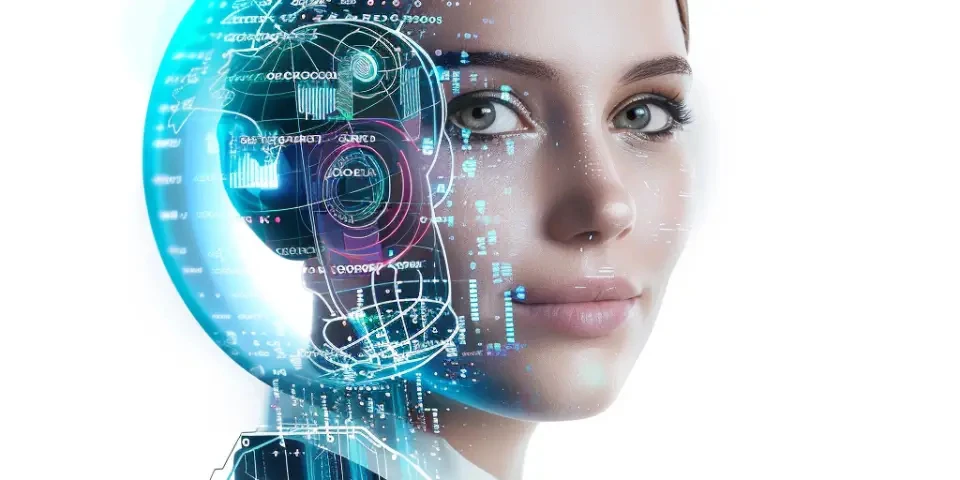The Next Frontier in Entertainment AI's Influence in Film and Gaming
In recent years, artificial intelligence (AI) has made significant advancements and is now poised to revolutionize the entertainment industry. From film to gaming, AI technologies are reshaping the way we create, consume, and interact with entertainment content. In this article, we will explore the various aspects of AI's influence in film and gaming, delving into its role in storytelling, visual effects, character development, game design, and more.
1. AI-enhanced storytelling:
AI algorithms can analyze vast amounts of data to generate compelling narratives and plotlines. By leveraging sentiment analysis, natural language processing, and machine learning, AI can create customized stories based on individual preferences, providing a more personalized and immersive storytelling experience.

Furthermore, AI-powered tools like scriptwriting assistants can assist writers in developing storylines, identifying plot holes, and enhancing character arcs, ultimately leading to more engaging and coherent narratives.
2. Enhanced visual effects:
Visual effects play a vital role in both film and gaming, and AI is revolutionizing this aspect. AI algorithms can automatically generate realistic graphics and special effects, reducing the need for manual labor-intensive processes. This not only saves time and effort but also allows for more creativity and innovation in visual storytelling.
Additionally, AI-powered video editing software can analyze and categorize footage, making the post-production process more efficient and seamless. These tools can also enhance scene transitions, color grading, and other visual elements, resulting in visually stunning and polished end products.
3. AI-driven character development:
AI's influence extends to the development of realistic and dynamic characters in film and gaming. Facial recognition algorithms can analyze human emotions and expressions, enabling characters to display more lifelike reactions and behavior. This technology adds depth and authenticity to storytelling, enabling audiences to connect with characters on a deeper emotional level.
Furthermore, AI-based procedural generation techniques can create unique and diverse characters, eliminating repetitive and stereotypical representations. This fosters inclusivity and diversity in entertainment, making it more representative of the real world.
4. Intelligent game design:
AI algorithms are revolutionizing the game design process, offering intelligent solutions for procedural generation, level design, and enemy behavior. This allows game developers to create vast and immersive virtual worlds with minimal manual effort.
AI-powered game engines and platforms, such as Unity and Unreal Engine, provide developers with tools for advanced physics simulations, realistic motion graphics, and complex decision-making algorithms. These platforms empower developers to build more interactive and engaging gaming experiences.
5. AI-powered recommender systems:
AI-based recommender systems are becoming increasingly prevalent in both film and gaming, helping users discover relevant content based on their preferences. By analyzing user behavior, preferences, and previous interactions, these systems suggest tailored recommendations, improving user satisfaction and allowing for more targeted marketing strategies.
For example, Netflix utilizes AI algorithms to provide personalized movie and TV show recommendations based on an individual viewer's watching history and ratings. Similarly, gaming platforms like Steam use AI-driven recommendation engines to suggest games based on players' interests and gaming patterns.
Frequently Asked Questions:
Q: Can AI completely replace human creativity in entertainment?
A: While AI can assist and augment the creative process, human creativity remains essential. AI tools are most effective when working in tandem with human artists, writers, and designers, enhancing their capabilities rather than replacing them entirely.
Q: Does AI pose a threat to jobs in the entertainment industry?
A: AI is poised to disrupt traditional job roles in entertainment, but it also creates new opportunities. While certain tasks may be automated, AI can also lead to the development of new roles in AI-driven content creation, data analysis, and algorithm management.
Q: Are there any ethical concerns surrounding the use of AI in entertainment?
A: Ethical concerns do arise, particularly in the context of deepfake technology and biased algorithms. Ensuring transparency, accountability, and promoting responsible and ethical AI practices are crucial to mitigate these concerns.
References:
1. Müller, V., & Thue, D. (2021). Artificial Intelligence in the Creative Industries: The Fourth Industrial Revolution as a Critical Moment for the Creative Sector. Routledge.
2. Tsui, A. (2020). How artificial intelligence is changing the face of cinema. World Economic Forum.
Explore your companion in WeMate